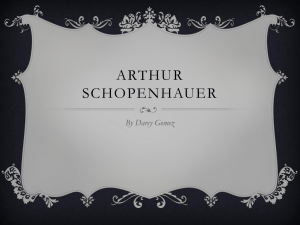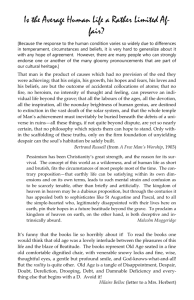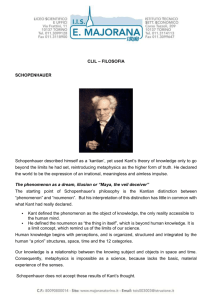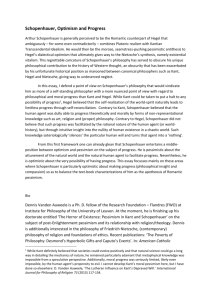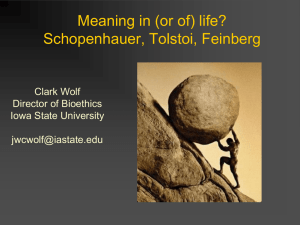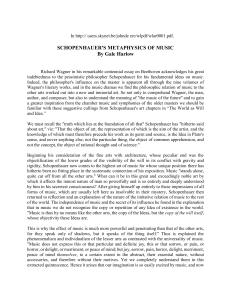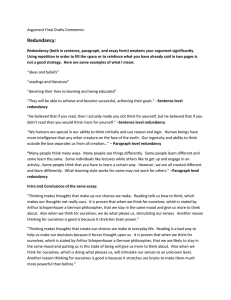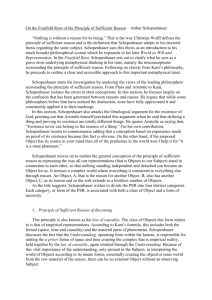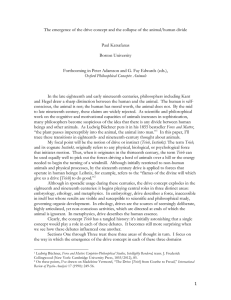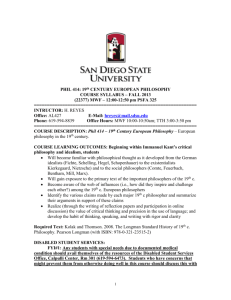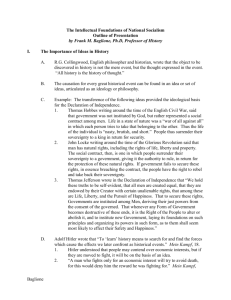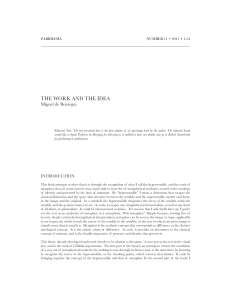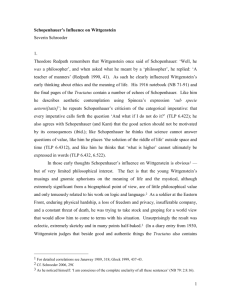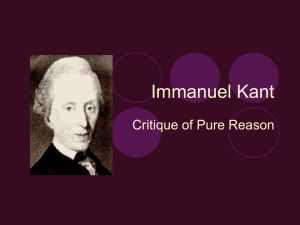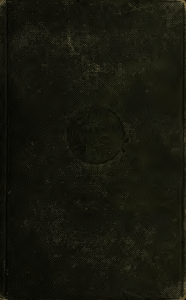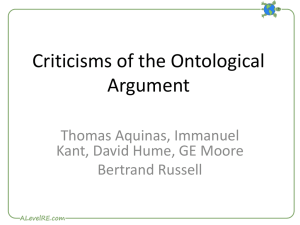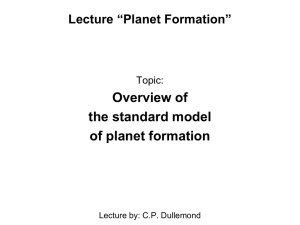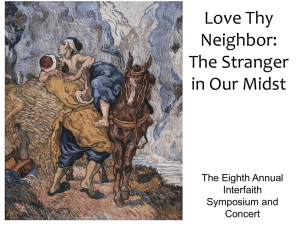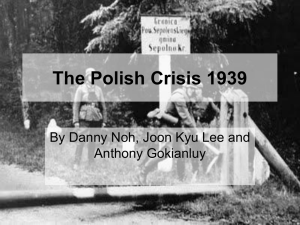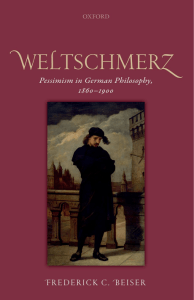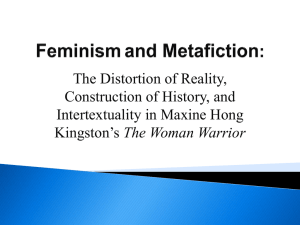arthurschopenhauerSE - Caroline JS (Kay) Picart Homepage
advertisement
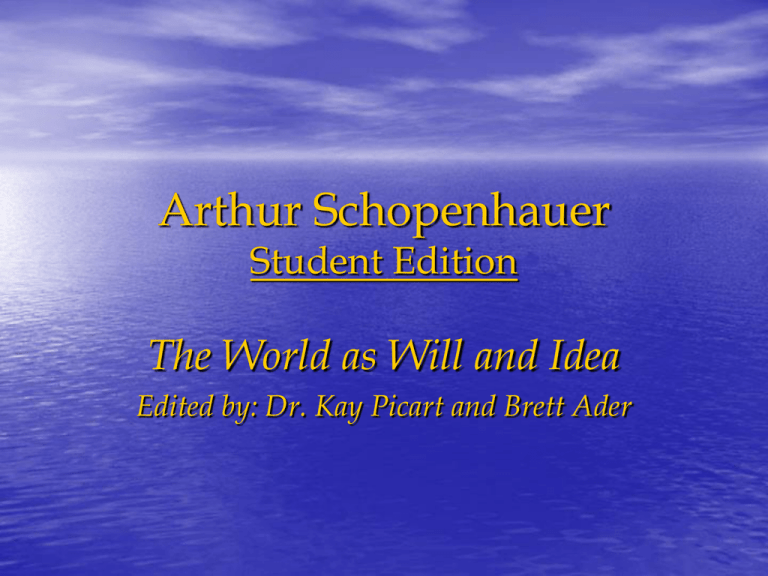
Arthur Schopenhauer Student Edition The World as Will and Idea Edited by: Dr. Kay Picart and Brett Ader Biography • 1. 1788 – 1860 • 2. Native of Danzig, • • Poland. 3. Parents – Heinrich, a member of the mercantile aristocracy and Johanna, a well respected author. 4. 1809 – Began studying at the University of Gottingen where he was first exposed to the works of Plato and Kant Eastern Influences • Inspired by F. Mayer, an Orientalist, to study the philosophies of ancient India • Language and Wisdom of the Old Hindus by Friedrich Schlegel • Persian and Sanskrit verse What is individual will? • _______________________________________ _______________________________________ _______________________________________ • _______________________________________ _______________________________________ _______________________________________ Questions • In what areas do you think Khayyam and Schopenhauer are similar? • And in what areas do they differ? Major Principle of Schopenhauer Every man takes the limits of his own field of vision for the limits of the world. Truth • All truth passes through three stages. – __________________ __________________ – __________________ __________________ – __________________ __________________ What is reality according to Schopenhauer? Reactions to Kant • Schopenhauer divides all Kantian cognitive forms into three forms – _________ – _________ – _________ How would you define the beautiful and the sublime, and what characteristics make them unique to one another? What were Schopenhauer’s views on art and science? • Art ______________ _________________ _________________ _________________ • Science __________ _________________ _________________ _________________ What is Platonism? • __________________________________ __________________________________ __________________________________ • __________________________________ __________________________________ __________________________________ Other Works by Schopenhauer • On the Will in Nature 1836 • The Basis of Morality 1841 • Essays from the Parerga and Paralipomena 1851
